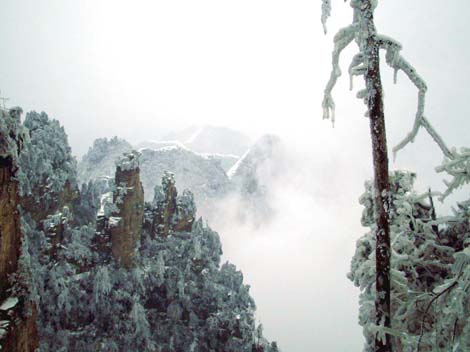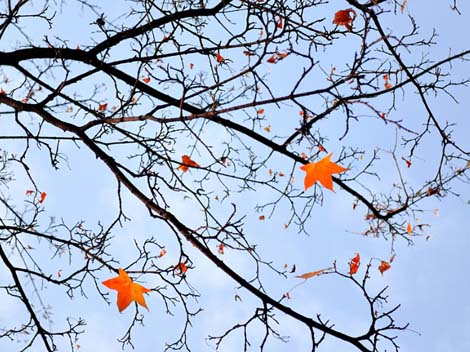In the Gregorian calendar, the Start of Winter usually falls around November 7, and more often refers in particular to the day when the sun is exactly at the celestial longitude of 225°.

As its name suggests, the Start of Winter marks the beginning of winter. By then, farmers have harvested the grains and have stored them in the house, and some animals have begun to hibernate.
On Start of Winter Day in ancient times, the emperor would perform the ritual of welcoming the winter in the suburbs and he would bestow his officials with winter clothes and show his mercy to the poor.
Before the Start of Winter, the court historian would tell the emperor the date of Start of Winter Day, and the emperor would take a shower and have no more meat. After the ritual of welcoming the winter, the emperor would award the martyrs and show his caring to the poor.
The Manchu people have a custom of burning incense on Start of Winter Day. The Han Eight Banners have a custom of “burning the Banner incense and playing the god of tiger,” and the Manchu Eight Banners have a custom of “shao huanxiang,” which lasts five to seven days. Before the ritual, the whole family must eat no meat for at least ten days.
In the Tianjin area, people eat dumplings with wogua (cashews) in them. It is a common vegetable in North China. Generally, the wogua is bought in the summer and stored in an empty room or on the windowsill. After its long storage, the wogua is taken out and made into filling for dumplings. It tastes different from Chinese cabbage, but also different from summer wogua. With vinegar and garlic, the dumplings with the wogua filling are delicious.

Today, people and farmers in particular take one day off after the busy farming seasons and enjoy a large dinner with their families. People in the south enjoy eating chicken, duck, fish, and meat, while people in the north, especially in Beijing and Tianjin, prefer eating dumplings on this day. However, the celebration can also get very creative. For example, in Harbin, people use winter swimming to welcome the winter.





